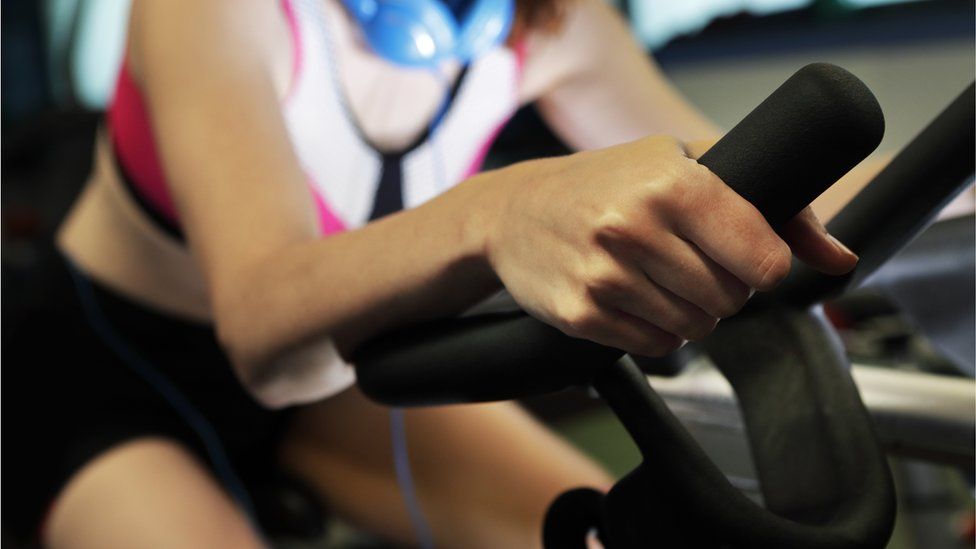ARTICLE AD BOX
 Image source, Getty Images
Image source, Getty Images
A spin class is considered very vigorous activity
A big burst of exercise at the weekend is as good as spreading activity out across the week, according to a study.
US researchers tracked 350,000 people over 10 years to see how well so-called weekend warriors fared.
The findings, in the JAMA Internal Medicine journal, suggest the type and total amount of exercise count, rather than how many sessions.
At least 150 minutes a week of moderate intensity exercise is recommended.
Going for a brisk walk, a light effort cycle on a bike or playing doubles in tennis would count towards this.
Or you could do 75 minutes of vigorous activity - something like running, swimming or playing a game of football - say health experts in guidance published by the NHS.
Many of the participants in the US study clocked up this amount in a week. But some crammed it into one or two sessions rather than spacing it out.
Those who reached their recommended level of activity, whether during the week or the weekend, had lower a death risk than those who did less than the recommend amount.
Image source, Getty Images
Image caption,Hiking is considered a good way to reach exercise targets
The NHS also says people should do some form of physical activity everyday including strength exercises and try not to stay seated for extended periods of time.
Strength exercises include yoga, pilates and heavy gardening.
Very vigorous activity that can help achieve recommended physical activity levels and can be done in shorter, sharper bursts, includes:
- high-intensity interval training
- spinning classes
- lifting heavy weights
- hill sprinting
Breathe harder
British Heart Foundation senior cardiac nurse Joanne Whitmore said: "This large study suggests that, when it comes to exercise, it doesn't matter when you do it.
"The most important thing is that physical activity is undertaken in the first place.
"Whether you cram your exercise in on the weekend or spread it across the week, aim for 150 minutes of moderate-intensity activity each week.
"Exercise can improve your health, reducing your risk of heart and circulatory diseases like heart attack and stroke.
"Moderate-intensity activities make you breathe harder and make your heartbeat faster than usual but you should still be able to have a conversation whilst doing them."
Related Internet Links
The BBC is not responsible for the content of external sites.

 2 years ago
41
2 years ago
41








 English (US) ·
English (US) ·